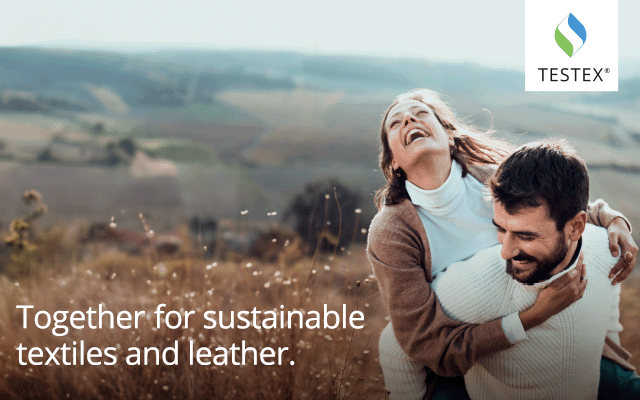The textile and leather industry are in a state of flux: this is not only due to new laws and regulations, consumers are also yearning for more security and transparency in supply chains. This in turn puts companies in the position of having to act. In order to be able to position themselves credibly in the future and to offer consumers products that are safe for their health, authentic proof is necessary.
This also applies to chemicals, colors and accessories used in the textile and leather industries. Here, too, it is essential for a brand, a retailer or a manufacturer to demonstrate a sustainable approach to sourcing. Brands are therefore on the lookout for manufacturers who comply with certain standards. Independent and credible certificates are an easy way to create transparency and trust.
But what to rely on as a producer?
With ECO PASSPORT, the OEKO-TEX® Association offers precisely this credible proof: as a certification system, it is designed for manufacturers of process chemicals and chemical compounds, including formulations typical of the textile, leather and clothing industries. The leather and textile chemicals certified according to ECO PASSPORT are tested for harmful substances in critical concentrations as listed in the corresponding standard. Thus, the label transparently demonstrates which articles meet the criteria for ecologically responsible textile and leather production. Minli Zhao, Vice President, Consumer Industry of BASF Performance Materials Asia Pacific can also confirm this: “OEKO-TEX® is very reputable within the textile market and carrying its logo is a stamp of guarantee, that our products have adhered to sustainability standards.” Once a year, OEKO-TEX® updates the banned substances and limit values and expands them to include new scientific findings or legal requirements.
And how does ECO PASSPORT work?
If a manufacturer decides to cooperate with OEKO-TEX®, a multi-stage process is used to check whether each individual ingredient of a chemical product is harmless to human health and meets the legal requirements. In addition to a CAS number screening, an analytical verification and optionally a self-assessment and On-site visit is carried out. If the certification is successfully completed, the applicant receives, among other things, the ECO PASSPORT label. Every ECO PASSPORT certified chemical also receive automatic conformance to the ZDHC MRSL 2.0. The conformance level starts at 1 but levels 2 and 3 (the highest attainable level) can be achieved by opting for the optional self-assessment or On-site visit.
TOTAL Lubrifiants has also taken these steps. Today, Ozgur Bayav, Global Textile Manager at TOTAL Lubrifiants, is convinced above all by the safety aspect: “I think that safety and sustainability are key elements within the Textile Industry where both OEKO-TEX® and TOTAL ticks all the boxes. Given the confidence brought by OEKO-TEX® to the Textile Industry across the 150 countries in the world we are operating, we decided to certify our Textile Specialties such as TIXO knitting oils and LISSOLFIX coning oils with ECO PASSPORT by OEKO-TEX®.”
Do you want to learn more? ECO PASSPORT by OEKO-TEX® (oeko-tex.com)



20240507093455.png)






Comments